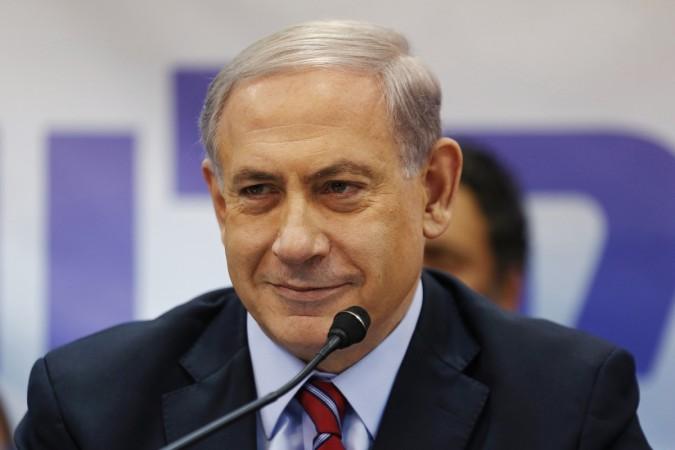
Israel on Saturday thanked India for not voting on an "anti-Israel bashing" UNHRC resolution, which sources said was a result of Tel Aviv's sustained talks with the Indian leadership over the past year.
Israeli envoy to India Daniel Carmon tweeted his appreciation. "We appreciate votes by members of @UN_HRC, including #India, who did not support yet another anti Israel bashing resolution. We thank them."
On Friday, India abstained on a United Nations Human Rights Council (UNHRC) resolution condemning Israel over a UN report into the alleged war crimes committed during the 2014 Gaza conflict - marking a significant change in India's stance.
But India also stated that "there is no change in New Delhi's long-standing position on support to the Palestinian cause".
Forty-one of the 47 UNHRC council members voted in favour of the resolution, including the eight sitting EU members: France, Germany, Britain, Ireland, the Netherlands, Portugal, Latvia and Estonia.
Only the US voted against the resolution.
India, Kenya, Ethiopia, Paraguay and Macedonia abstained.
Israel has been in touch with the leaders of the five countries that abstained since last July, when India had voted against Israel in the UNHRC.
Officials in Prime Minister Benjamin Netanyahu's office have said that Netanyahu had himself spoken with the leaders of India, Kenya and Ethiopia over the past few days, Israeli media reported.
However, according to sources, Israel began the effort from last July itself.
Israel feels the UNHRC vote on the violence in the Gaza Strip was "politicised" and "unbalanced". According to Israel, the resolution does not take into account the 5,000 rockets fired into its territory by Hamas.
The upcoming UNHRC vote was also taken up by Israeli Defence Minister Moshe Ya'alon when he visited India and held talks with Prime Minister Narendra Modi, External Affairs Minister Sushma Swaraj and other officials.
"The UNHRC vote has been in discussions for a while with India," a source told IANS.
Israel conveyed to India that it understands India's concerns about fighting terror as it is also experiencing terrorism, and both are united on the issue of combating the menace.
Iraeli daily Haaretz, reflecting the appreciation of India's stand, said: "The fact that India abstained reflects a significant policy change by Delhi; traditionally, India voted in favour of all anti-Israel resolutions in UN institutions. Friday's abstention was another sign of warming ties between India and Israel since the election of Prime Minister Narendra Modi in 2014."
Congress MP Shashi Tharoor, who is also the chairman of the Parliamentary Standing Committee on External Affairs, told IANS: "My understanding of the MEA position is that it is our normal practice to abstain when a resolution invokes the International Criminal Court (ICC), and that in this case too, that was done.
"In other words, MEA says the abstention had nothing to do with the merits of the resolution and does not reflect a changed stand on the Israel-Palestine question. Personally I will take MEA's word for it while stressing that India's consistent and moral position on the substantive issue must not be diluted. There is a national consensus on Palestine which I would urge the government to continue to respect."
Ministry of external affairs spokesperson Vikas Swarup on Friday said that India's reason for abstention in the resolution A/HRC/29/L.35 was the reference to the ICC.
"India is not a signatory to the Rome Statute establishing the ICC.
"In the past also, whenever a Human Rights Council resolution made a direct reference to the ICC, as happened in the Resolutions on Syria and North Korea, our general approach had been to abstain."
"We have followed the same principle in our voting on today's Resolution," he said.
Prime Minister Modi is to visit Israel this year -- in the first-ever prime ministerial visit. Sushma Swaraj is also to visit Israel this year, while Home Minister Rajnath Singh visited Tel Aviv earlier this year -- marking warming in bilateral ties.
An independent UN commission of inquiry on Monday released its report on Operation 'Protective Edge', finding evidence that both Israel and Hamas committed war crimes during the war in the Gaza Strip last summer and calling the devastation caused in the Palestinian territory "unprecedented".
The members of the commission, which was appointed by the UNHRC, hinted in their report that the upper levels of the Israeli political echelon were responsible for the policies that led to some of the war crimes.






!['He is done with the team now' : Angry Virat Kohli slams the bat, kicks the ground, yells at RCB team as SRH smashes runs [reactions]](https://data1.ibtimes.co.in/en/full/796956/he-done-team-now-angry-virat-kohli-slams-bat-kicks-ground-yells-rcb-team-srh-smashes.jpg?w=220&h=138)






